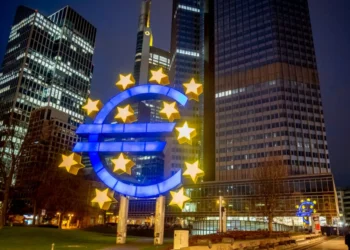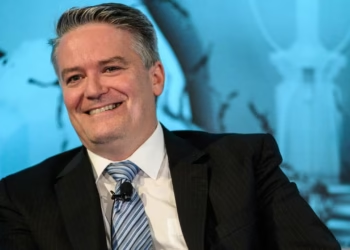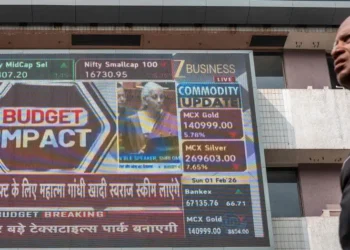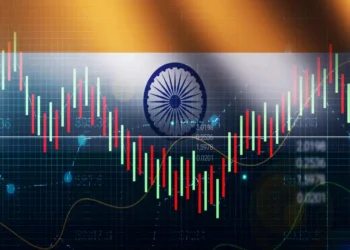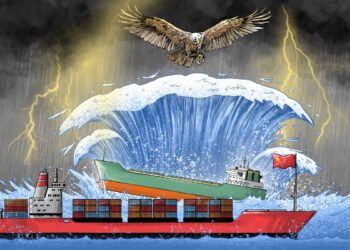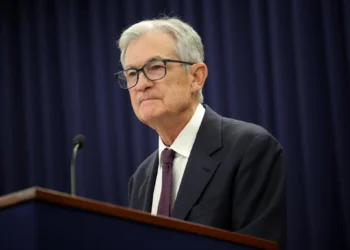FRANKFURT (Realist English). Germany’s top three carmakers — Volkswagen, Mercedes-Benz, and BMW — are expected to lose over €10bn in automotive cash flow this year, as US trade tariffs imposed by President Donald Trump squeeze margins across a sector already grappling with slowing sales and intensifying competition from Chinese electric vehicle manufacturers.
According to analysts at Visible Alpha, Mercedes-Benz’s automotive free cash flow could plummet from €9.4bn in 2024 to just €3bn this year. Volkswagen is projected to fall from €7.1bn to €3.5bn — or even as low as €1bn, based on revised internal forecasts. BMW, though less severely affected, is also facing a drop, from €4.8bn to €4.4bn.
The damage is linked to a 25% US tariff on foreign-built cars, with German and Mexican-made vehicles now often subject to a total duty of 27.5%. Automakers initially buffered the impact by relying on pre-tariff inventories, but those supplies have dwindled. Rising export costs, pricier imported components, and disrupted supply chains are now weighing heavily on balance sheets.
Volkswagen has already recorded a €1.3bn tariff hit in Q2 and warned the burden could climb to several billion euros without a policy shift. It posted a negative automotive cash flow of €523mn for the quarter. The picture is similarly bleak elsewhere: General Motors anticipates up to $5bn in annual tariff-related costs, having already incurred $1.1bn in Q2. Stellantis expects €1.5bn in annual impact, while Tesla faces rising costs beyond its €300mn second-quarter exposure.
The European carmakers had hoped for a diplomatic breakthrough. In May, BMW forecast that Washington might lower tariffs by July. Although talks between the EU and US reportedly advanced, with a possible 15% rate on many European imports, it remains unclear whether vehicles will be included.
The tariff fallout comes at a delicate time for the German auto industry. While the three leading manufacturers together hold more than €100bn in industrial liquidity — a legacy of the post-COVID boom in demand and pricing — analysts warn that capital is being drained too quickly.
“They are pretending everything is fine when it’s not,” said Thomas Besson, autos analyst at Kepler Cheuvreux. “Some companies are still buying back shares when they should be restructuring instead.”
Volkswagen, in particular, is under pressure to overhaul its bloated manufacturing base and improve cost efficiency as Chinese competitors like BYD threaten global market share.
Meanwhile, suppliers have responded swiftly to the new trade environment. Swedish seatbelt and airbag giant Autoliv raised its annual sales guidance after recouping 80% of its tariff-related costs in Q2. CEO Mikael Bratt expects to recover most of the remainder by year-end.
But the downstream burden is creeping into car prices. Mark Wakefield of AlixPartners estimates total global auto tariff costs could reach $30bn this year. He predicts carmakers will pass on about 80% of that to consumers — not through overt price hikes, but through stealthy reductions in discounts and tweaks to financing terms.
Yet even this tactic carries risks. “You can protect margins by raising prices,” Wakefield said, “but if demand weakens, the cash erosion returns — just through lower volumes.”



